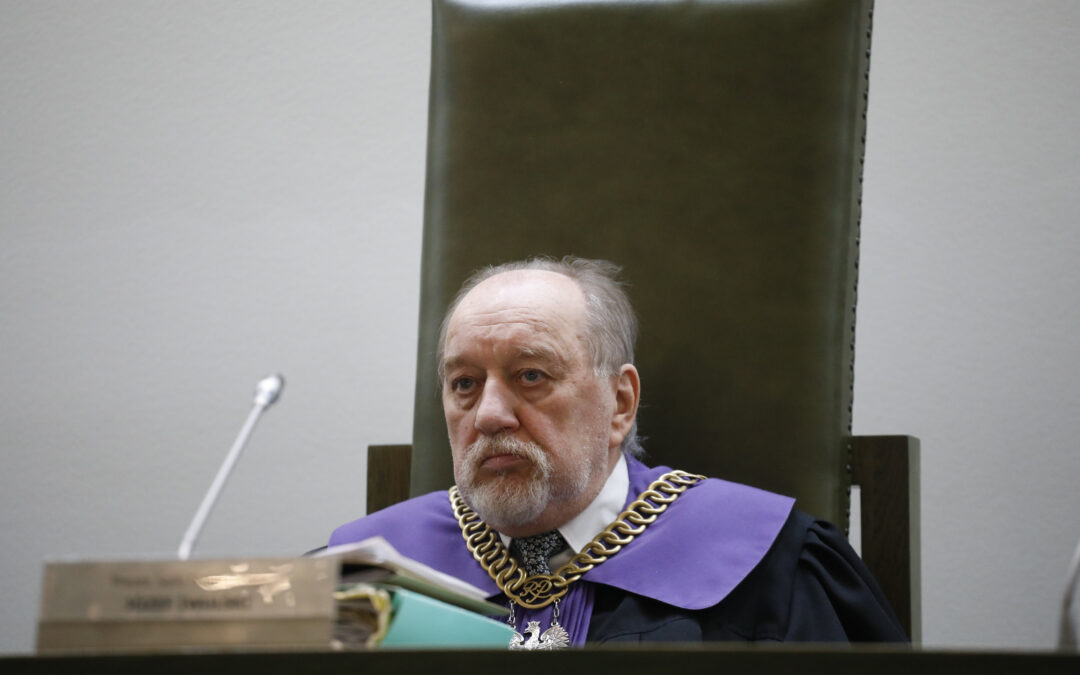A senior judge on Poland’s Supreme Court, who serves as the chairman of one of its chambers, has been stripped of immunity from prosecution to face potential charges over issuing an unlawful conviction during the communist era.
The decision was issued by the Supreme Court’s own disciplinary chamber, a body created by the current government but whose legitimacy has been rejected by the Supreme Court itself.
A majority of members of the disciplinary chamber today approved a resolution to strip Józef Iwulski – who is head of the Supreme Court’s labour chamber – of immunity, suspend him from official duties, and reduce his salary by 25%. The judge can still appeal against the decision.
After today’s ruling, Iwulski’s lawyer, Sylwia Gregorczyk-Abram, noted that it is the labour chamber of the Supreme Court that has issued most referrals of cases to the Court of Justice of the European Union. “Removing its chairman opens the way for discontinuation of those proceedings,” she said, quoted by Rzeczpospolita.
The Disciplinary Chamber waives the immunity of Supreme Court judge Józef Iwulski, President of the Labour Chamber + unlawfully suspends him & reduces his remuneration by 25%. It'd allow discontinuing proceedings in which Labour Chambers submitted preliminary references to CJEU https://t.co/TOYnbGoeNG
— Rule of Law in Poland (@RULEOFLAWpl) July 2, 2021
The disciplinary chamber’s ruling was made in response to a request by prosecutors from the Institute of National Remembrance (IPN), a state body charged with investigating Nazi- and communist-era crimes.
They want to charge Iwulski over his role in the conviction of a man, Leszek W., detained under martial law in 1982 for distributing leaflets depicting Poland surrounded by barbed wire. He was sentenced to three years in prison for “publicly ridiculing the Polish People’s Republic” and “encouraging riots and strikes”.
Yet according to the IPN’s prosecutors, the actions carried out by the defendant did not constitute a crime even under the laws and decrees put in place by the communist authorities at the time.
They argue that his conviction – which was overturned by the Supreme Court in 1992 after the fall of communism – was meant to chiefly serve as a “deterrent” and was thus “in line with the repressive policy of the PRL [communist] authorities” towards activists.
However, during this week’s proceedings, a former president of the Supreme Court, Adam Strzembosz, spoke in defence of Iwulski. He argued that judges under communism faced enormous pressure and many moral dilemmas, and that Iwulski was not a “servant of the regime”, reports TVN.
Iwulski’s lawyers also argued that the proceedings against him were in reality intended to “‘capture’ the files of cases from the Labour Chamber, in which prejudicial questions were asked, and to discontinue these proceedings”, reports Gazeta Wyborcza.
The Commission's decision follows a ruling by another chamber of the Polish Supreme Court (at the request of the ECJ) that the disciplinary chamber "is not a court within the meaning of EU and national law".
See our report below for more https://t.co/brcnGAHAuY
— Notes from Poland 🇵🇱 (@notesfrompoland) January 14, 2020
The controversial disciplinary chamber of the Supreme Court last year stripped two judges – Igor Tuleya and Beata Morawiec – of their immunity at the request of prosecutors seeking to bring charges against them. The decision against Morawiec was, however, last month overturned on appeal.
Both judges – who have been prominent critics of the government’s judicial policies – say the accusations against them are politically motivated. They also refuse to accept the legitimacy of the disciplinary chamber, which was created as part of those policies.
The Supreme Court itself has found the chamber to “not be a court [under] EU and national law”. In April, the Court of Justice of the European Union ordered it to suspend disciplinary activity, yet it has continued to operate.

Daniel Tilles is editor-in-chief of Notes from Poland. He has written on Polish affairs for a wide range of publications, including Foreign Policy, POLITICO Europe, EUobserver and Dziennik Gazeta Prawna.




















